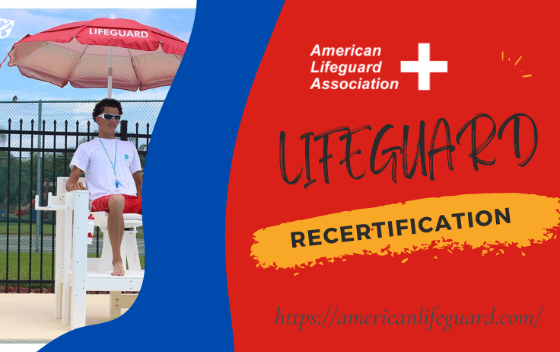Being a lifeguard is a rewarding and important job that requires a combination of skills, qualifications, and duties. Whether they’re stationed at a beach, pool, or waterpark, lifeguards are responsible for ensuring the safety of swimmers and preventing accidents from happening. In this article, we’ll take a closer look at what lifeguards do, the qualifications they need, and the skills required to succeed in this profession.
Table of Contents
Duties of a Lifeguard
Lifeguard Class have a wide range of duties that are aimed at preventing accidents and ensuring the safety of swimmers. Some of their key responsibilities include:
Monitoring the water: Lifeguards are responsible for keeping a watchful eye on swimmers and ensuring that everyone is following safety rules.
Responding to emergencies: In the event of an accident, lifeguards must be able to quickly and efficiently respond to the situation and provide first aid or CPR if necessary.
Maintaining equipment: Lifeguards are also responsible for maintaining equipment such as rescue tubes, life jackets, and other safety gear.
Educating swimmers: Lifeguards often provide educational programs and safety tips to help prevent accidents and promote safe swimming practices.
Qualifications for Lifeguards
To become a lifeguard, there are several qualifications that must be met. These may vary depending on the specific location and job requirements, but generally include:
- Age requirements: Lifeguards must be at least 16 years old in most locations.
- Certification: Lifeguards must be certified in CPR and first aid, as well as in water rescue techniques.
- Physical fitness: Lifeguards must be physically fit and able to swim long distances.
- Communication skills: Lifeguards must be able to communicate effectively with swimmers, other staff members, and emergency responders.
Skills Required for Lifeguards
In addition to the qualifications listed above, there are several key skills that are required for success as a lifeguard. These include:
Attention to detail: Lifeguards must be able to closely monitor swimmers and quickly identify potential hazards.
Problem-solving skills: In the event of an emergency, lifeguards must be able to think quickly and make decisions under pressure.
Teamwork: Lifeguards often work as part of a team and must be able to collaborate effectively with other staff members.
Customer service: Lifeguards must be able to interact with swimmers in a friendly and helpful manner, while also enforcing safety rules and regulations.
Why lifeguard is important on beach
When you visit the beach, you might notice a team of lifeguards stationed along the shoreline. These trained professionals play a critical role in ensuring the safety of swimmers and beachgoers. In this article, we’ll explore why a lifeguard is so important on the beach and the valuable services they provide.
Preventing Drowning
One of the primary reasons that a lifeguard is important on the beach is to prevent drowning. Drowning is a leading cause of accidental death worldwide, and the risk is particularly high in aquatic environments like the ocean or a lake. Lifeguards are trained to recognize the signs of distress and provide assistance to swimmers who are struggling in the water. By monitoring the beach and intervening quickly in emergency situations, lifeguards can help prevent drowning and save lives.
Providing First Aid
In addition to preventing drowning, lifeguards also provide first aid services to beachgoers who suffer injuries or illnesses. From minor cuts and scrapes to more serious injuries like broken bones or heat stroke, lifeguards are trained to provide basic medical assistance until emergency responders arrive. This can make a significant difference in the outcome of an emergency situation, and can help to minimize the severity of injuries.
Enforcing Safety Rules
Another important role that lifeguards play on the beach is enforcing safety rules and regulations. By establishing and enforcing rules related to swimming, boating, and other activities, lifeguards can help prevent accidents and injuries. This might include restricting swimming in certain areas, prohibiting dangerous behaviours like diving into shallow water or enforcing restrictions on the use of inflatable toys or other floatation devices.
Educating the Public
Lifeguards also play a valuable role in educating the public about beach safety. By providing information about potential hazards, best practices for swimming and boating, and the importance of following safety rules, lifeguards can help to prevent accidents before they occur. They might also offer educational programs or demonstrations to help beachgoers learn more about beach safety and first aid.
Conclusion
Being a lifeguard is a challenging and important job that requires a combination of skills and qualifications. Whether stationed at a beach, pool, or waterpark, lifeguards are responsible for ensuring the safety of swimmers and preventing accidents from happening. By meeting the necessary qualifications and developing the required skills, aspiring lifeguards can embark on a rewarding career that makes a difference in the lives of others.
Overall, the role of a lifeguard on the beach is a vital one. From preventing drowning and providing first aid to enforcing safety rules and educating the public, lifeguards provide a range of essential services that help to keep beachgoers safe. The next time you visit the beach, take a moment to thank the lifeguards who are working hard to ensure your safety and the safety of those around you.



